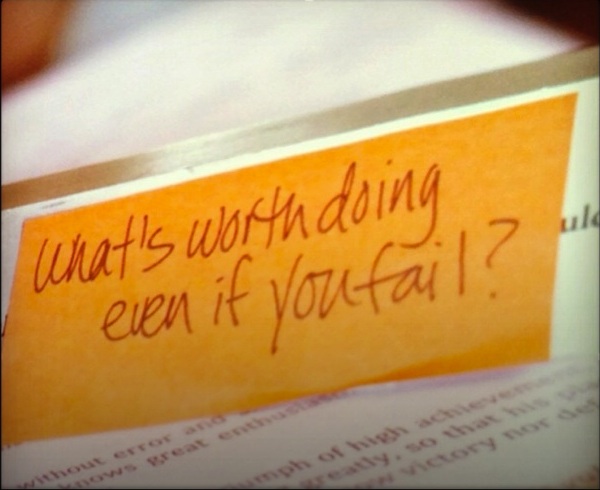
Failure feels bad
It is paradoxical. Success feels good – but often teaches us less than failure; which feels bad. And typically, as humans, we avoid that which feels bad. Particularly, if there is a negative consequence to it (which there almost aways is).
So why does failure feel so bad – when it is usually the source of most growth and learning? And why do we need to teach our kids how to fail?
Success as a fetish
It starts early – we fetish success.
We value activities that end in success, rather than valuing the journey and process of the activity for its own sake (regardless of the outcome).
We teach our children it is about getting things right- about getting A’s, about winning the sports carnival. About reaching the “requisite” standard.
In short – about succeeding in life.
But we don’t teach them how to fail. Failure is typically either used as an explanation for why the child needs to do better, or as an illustration of how far off the required standard they are.
And we certainly don’t celebrate failure.
It is extremely rare that failure is seen as a demonstration that the child has tried something. Or better still, what lessons they might have learnt from the failure. How those lessons might be useful in other aspects of their learning and growth.
We teach kids that success is better than failure, and that success feels good and failure feels bad.
Dr Carol Dweck has talked extensively about this in her book – Mindset.
What does this mean for the workplace and leadership?
There are three implications for the workplace.
Those kids with the fixed mindsets end up as your employees
Those kids that with the fixed mindsets, the ones that won’t try for fear of failing, or won’t ask for fear of getting something wrong, are those very same adults who end up in the workplace.
More and more, we want employees who can think for themselves, who can question, who can try new approaches and ways of working.
Fear of failure and the fixed mindset just doesn’t deliver this.
When we fetish success, we diminish what we can learn from failure
By fetishising success, failures are either not discussed or are done so in a pejorative manner: what went wrong. Why didn’t we succeed?
Rather than- what did we learn from this? How can this help us next time? What value did we derive from the lessons learnt? Was it worth it anyway?
Digital economy
The digital economy is about agility and rapid response to the market. With less time to plan it out, there will be (many) times that things don’t go to plan. Learning from and celebrating these failures will be so important for the companies of the future.
What’s worth doing even if you fail?
A question often asked: what would you do, if you knew that you wouldn’t fail? That is, if success was guaranteed. What would make you brave?
Brene Brown asks a different question: what’s worth doing even if you fail? What’s worth doing for the learning, for the journey, for the lessons learnt?
It’s a different way of looking at things, but one which will become increasingly important in the future.
Want More?
If you would like to discuss how I could help you look at your mindset or that of your team, get in touch.
And if you’re still hungry for more you can find my leadership book here which has some great resources on mindset, including more from Dr Carol Dweck.
Until next week, happy leading.

With thanks to Brene Brown for the picture of her slide, taken whilst listening to her speak in Melbourne.

